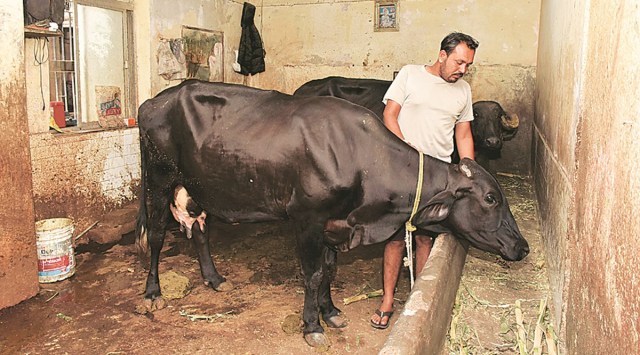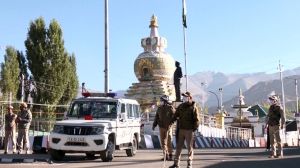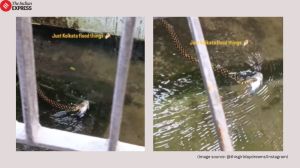‘Is cattle-rearing illegal? New law will push us to margins of cities’
In a bid to check the menace of stray cattle in urban areas, the Gujarat Assembly recently passed the Gujarat Cattle Control (Keeping and Movement) in Urban Areas Bill 2022, that gives the state government and local bodies the power to declare parts of an urban area or an entire urban area as ‘prohibited zones’ for cattle rearing and movement.
 “If govt can allot land to Amul dairy, why not us?”. (Express Photo)
“If govt can allot land to Amul dairy, why not us?”. (Express Photo)In a bid to check the menace of stray cattle in urban areas, the Gujarat Assembly recently passed the Gujarat Cattle Control (Keeping and Movement) in Urban Areas Bill 2022, that gives the state government and local bodies the power to declare parts of an urban area or an entire urban area as ‘prohibited zones’ for cattle rearing and movement. As part of the new law, which has been opposed by the maldhari community of cattle-rearers, violations will now be a cognisable offence. Sarju Varu, 30, who owns 10 cows and 2 buffaloes in Milpara, in the heart of Rajkot city, is unhappy with the law.
🗞️ Subscribe Now: Get Express Premium to access the best Election reporting and analysis 🗞️
How will the new law impact you?
Under the new law, fodder won’t be freely available; it will only be sold in designated areas. In that case, maintaining my herd is going to be a very costly affair since I don’t know where I will have to travel to purchase fodder. And suppose they notify Milpara as a prohibited zone, I will be forced to migrate to some place outside the city with my herd. I have 125 customers in the city. Given the petrol rate, how will I be able to afford two trips to the city every day if I have to move out? This law will further push us maldharis to the margins of the city. I think this is a conspiracy in favour of big dairies.
Since when have you been living in Rajkot?
My grandfather Lakshmanbhai migrated to Rajkot city from Motavada, a village 35 km from here, around 60 years ago. This city has been home to four generations of our family.
Are maldharis taking up other occupations?
We are traditionally milk suppliers, but gradually, maldharis have begun running tea-stalls in cities and towns. The community is also getting into milk-processing — one of my cousins has set up a paneer plant.
Is cattle-rearing compatible with the urban landscape?
Is cattle-rearing an illegal activity? We maldharis are just practising our traditional occupation.
What, according to you, is the solution?
I agree cattle should not be let loose on city roads. But the problem really is of bulls and male calves that are of no use these days. I am not against the law but the government should think about our means of livelihood too. Even if we move out of the city limits, once the city grows, we will again be thrown out. But if the government allots us land — even if on the outskirts but with long-term guarantees — we can consider moving out. If the government can allot land to an Amul dairy, it can certainly allot some land to maldharis, who supply milk to everyone, including Amul.







